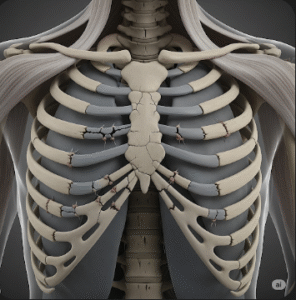Good dental health during childhood isn’t just about having a bright smile — it’s the foundation for lifelong health, confidence, and well-being. In Korea, where children enjoy one of the best healthcare systems in the world, dentists and pediatricians are emphasizing that oral hygiene habits must begin early — ideally even before the first tooth appears.
The latest Korean pediatric dental guidelines highlight that early prevention can significantly reduce the risk of tooth decay, gum disease, and orthodontic issues later in life. Here’s why early dental care matters so much and what parents should know to keep their children’s teeth healthy and strong.
1. Why Early Dental Care Matters
Children’s teeth, though temporary, play vital roles in development. Primary (baby) teeth help children chew properly, learn to speak clearly, and maintain space for their permanent teeth. Neglecting dental care in early years can lead to cavities, infections, and even growth problems.
• Early decay is common: Studies show that nearly 40% of Korean children under age six experience dental caries (tooth decay).
• Untreated cavities affect learning and nutrition: Pain or infection can make eating difficult and disrupt concentration at school.
• Baby teeth guide permanent teeth: Losing them too soon can cause misalignment or crowding later.
• Oral health affects overall health: Poor dental hygiene has been linked to infections and other systemic conditions.
Healthy dental habits formed early are easier to maintain throughout life — prevention is always better (and cheaper) than treatment.
2. The Right Time for a Child’s First Dental Visit
Korean dental associations recommend that children see a dentist within six months after their first tooth appears or by their first birthday. Early visits help dentists identify issues before they become serious and allow parents to learn proper home care techniques.
Benefits of early visits:
• Detect early signs of tooth decay or enamel weakness.
• Teach parents about brushing, fluoride use, and diet.
• Help children become comfortable in a dental environment, reducing fear later.
• Allow dentists to guide jaw and tooth development as children grow.
Starting dental visits early helps establish a trusting relationship between the child, parent, and dental care team — making checkups routine instead of stressful.
3. Daily Dental Care Habits for Korean Kids
Forming consistent routines is key to preventing cavities and ensuring lifelong dental health. Korean pediatric dentists recommend these steps:
• Brushing: Begin cleaning even before teeth appear by gently wiping the gums with a soft, damp cloth. Once teeth erupt, brush twice daily with a small, soft-bristled toothbrush.
• Toothpaste use: A rice-sized amount of fluoride toothpaste can be used once the child can spit properly. Fluoride helps strengthen enamel and prevent decay.
• Flossing: Introduce flossing once two teeth touch each other to remove plaque between tight spaces.
• Mouth rinsing: For older children, mild fluoride mouth rinses can help protect against cavities.
• Parental supervision: Continue supervising brushing until at least age 7–8 to ensure proper technique and timing.
Consistency matters more than intensity — even short, gentle brushing twice a day has long-term benefits.
4. The Role of Diet in Dental Health
Korean nutritionists and dentists agree that what children eat has a direct impact on their oral health. Frequent snacking, sweetened drinks, and sticky foods are the main culprits behind cavities.
• Limit sugary snacks: Candies, chocolate, and sweet drinks should be occasional treats, not daily habits.
• Avoid sticky or chewy sweets: Foods like taffy, dried fruits, and rice cakes can cling to teeth and promote decay.
• Promote tooth-friendly foods: Cheese, yogurt, nuts, and crunchy fruits or vegetables help neutralize acids and clean teeth naturally.
• Encourage water: Fluoridated water is best for rinsing away food particles and maintaining hydration.
Tip: Encourage children to finish meals and snacks in one sitting rather than grazing all day — this reduces constant acid exposure that harms enamel.
5. Preventive Treatments Available in Korea
Modern Korean dental clinics offer several preventive treatments for children that are simple, effective, and pain-free.
• Fluoride application: Strengthens enamel and protects teeth from bacteria and acid.
• Sealants: A thin protective coating applied to the chewing surfaces of molars to prevent cavities.
• Regular cleanings: Professional cleanings remove plaque and tartar that brushing can’t reach.
• Orthodontic evaluation: Early assessment around age seven helps detect bite or alignment issues early.
Many local public health centers in Korea provide free or low-cost fluoride treatments and sealant programs for young children as part of national oral health initiatives.
6. Cultural Habits and Challenges in Korea
While Korean parents are becoming more aware of pediatric dental care, certain habits still pose challenges:
• Sweet drinks in baby bottles: Prolonged bottle feeding with juice or milk at bedtime can cause severe early childhood caries.
• High snack consumption: Convenience store snacks are often sugary or acidic.
• Skipping dental checkups: Some parents delay visits until visible problems arise, missing the chance for prevention.
Public campaigns and school-based oral health programs are helping raise awareness about early dental care, but parental guidance remains the most influential factor in shaping healthy habits.
7. Teaching Children to Value Oral Health
Dental health education should start early and be fun. Many Korean schools and kindergartens now include oral hygiene lessons as part of their health curriculum.
Ways to make brushing enjoyable:
• Use colorful toothbrushes or character-themed products.
• Play short songs to time brushing sessions (about two minutes).
• Praise or reward consistency rather than perfection.
• Brush together as a family to set an example.
Creating positive associations with dental care helps kids view oral hygiene as a natural, daily activity rather than a chore.
8. When to Worry — Signs That Need a Dentist’s Attention
Parents should seek dental care if they notice:
• Brown or white spots on teeth (early signs of decay).
• Sensitivity or pain when eating hot, cold, or sweet foods.
• Swelling or redness in the gums.
• Bad breath that doesn’t improve with brushing.
• Irregular spacing or crowding of teeth as permanent teeth emerge.
Prompt attention can prevent minor problems from becoming painful or expensive to treat later.
9. Government and School Dental Programs
Korea’s public health system strongly supports early dental prevention. National programs provide oral health education, fluoride mouth rinses in schools, and regular dental screenings for elementary students. These initiatives have significantly reduced cavity rates over the past two decades.
Community dental centers also run parent workshops and educational campaigns to teach proper brushing, healthy eating, and early intervention techniques.
Final Thoughts
Dental health is an essential part of overall health — and good habits should start in the earliest years of life. For Korean children, early care means fewer cavities, fewer orthodontic issues, and greater confidence as they grow.













